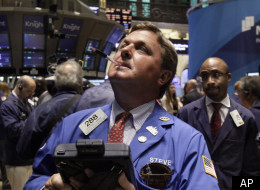Stocks Of Socialized Countries Have Outperformed U.S. Since Reagan Era
Specifically, during the twenty five years after Ronald Reagan took office -- a pro-market honeymoon that Ryan Chittum of the Columbia Journalism Review this week termed "the ascent of laissez-faire economic policies" -- French stock prices have performed significantly better than Americans ones, according to the report by Jon Bakija, Adam Cole, and Bradley Heim.
A further examination of the 39-year period extending from the end of the Nixon administration until 2008 shows the Swedish economy, known for its high taxes and heavy regulation, growing at a significantly higher rate than the US.
The authors conclude that big government might not actually stand in contradiction to a productive economy: "Countries with typically high levels of government involvement in the economy, such as Sweden, Denmark and Canada, do not appear to have experienced stifled economic growth relative to countries where government involvement is more limited, like the US," the report says.
With bastions of socialism -- Sweden Canada and France -- outpacing American market prices, does this mean it's time for Wall Streeters to start calling croissants "Freedom bagels?" Probably not.
According to Jacob Funk Kirkegaard, a research fellow specializing in European economies at the Peterson Institute for International Economics, the disparity between the American and European markets might have more to do with the period in question than governmental forces.
"In 1981, [Francois] Mitterand was elected president of France, and the first thing he did was to nationalize a bunch of French businesses and most of the banking system," Kirkegaard explained. "But going forward, France has moved quite dramatically towards a market-oriented economy, though not anywhere near the scope of market and economic freedom as perceived in the U.S."


